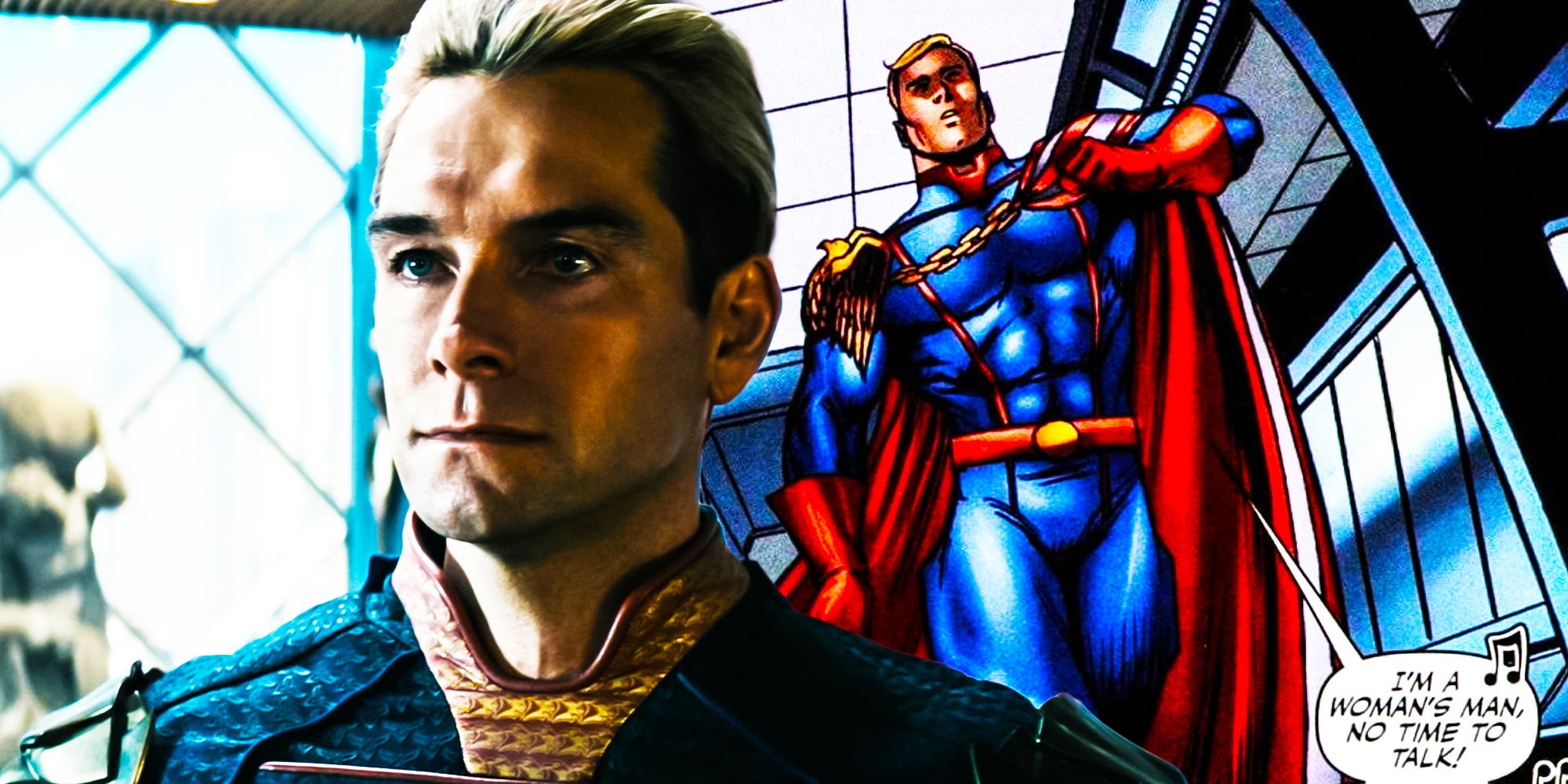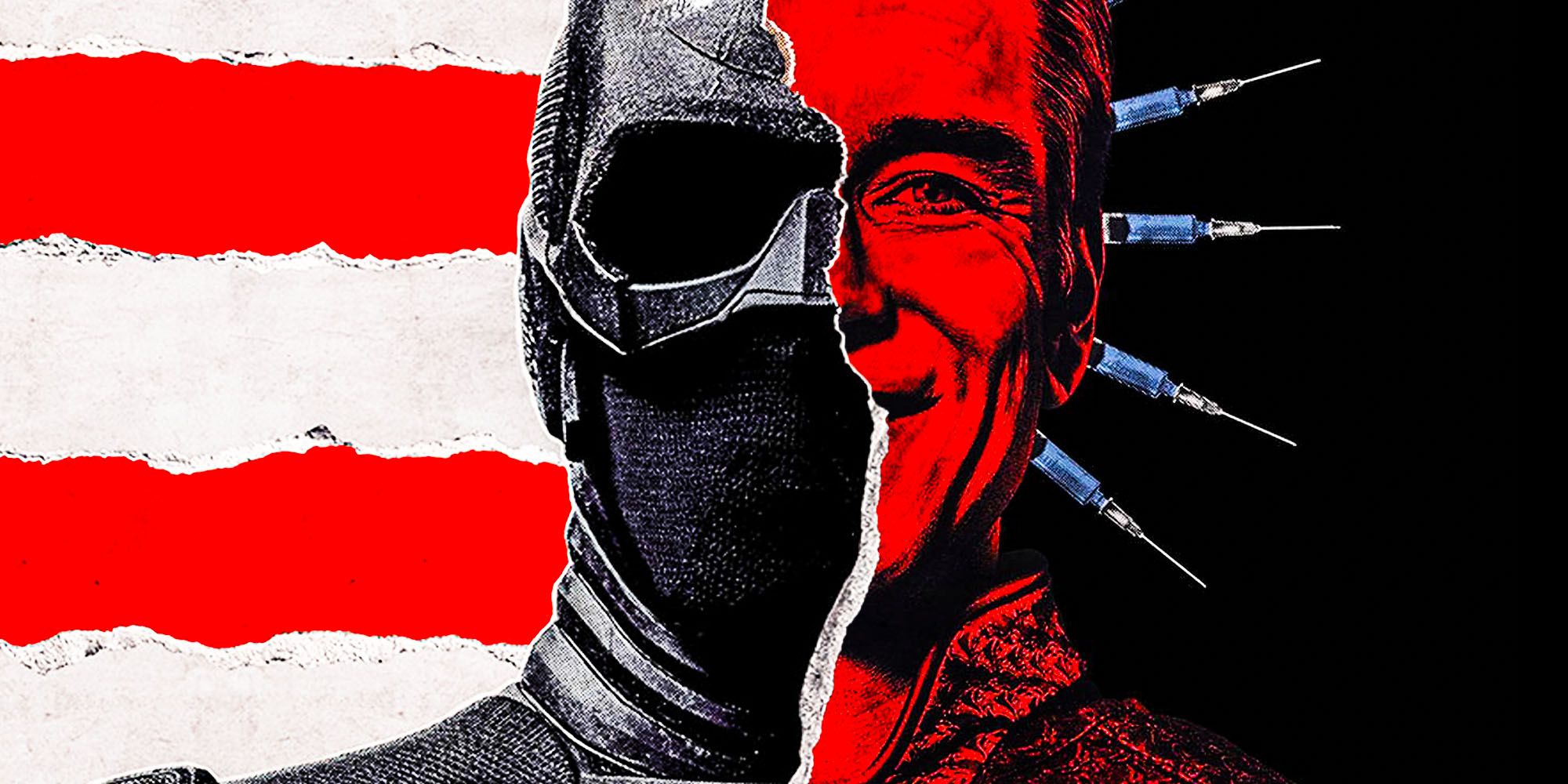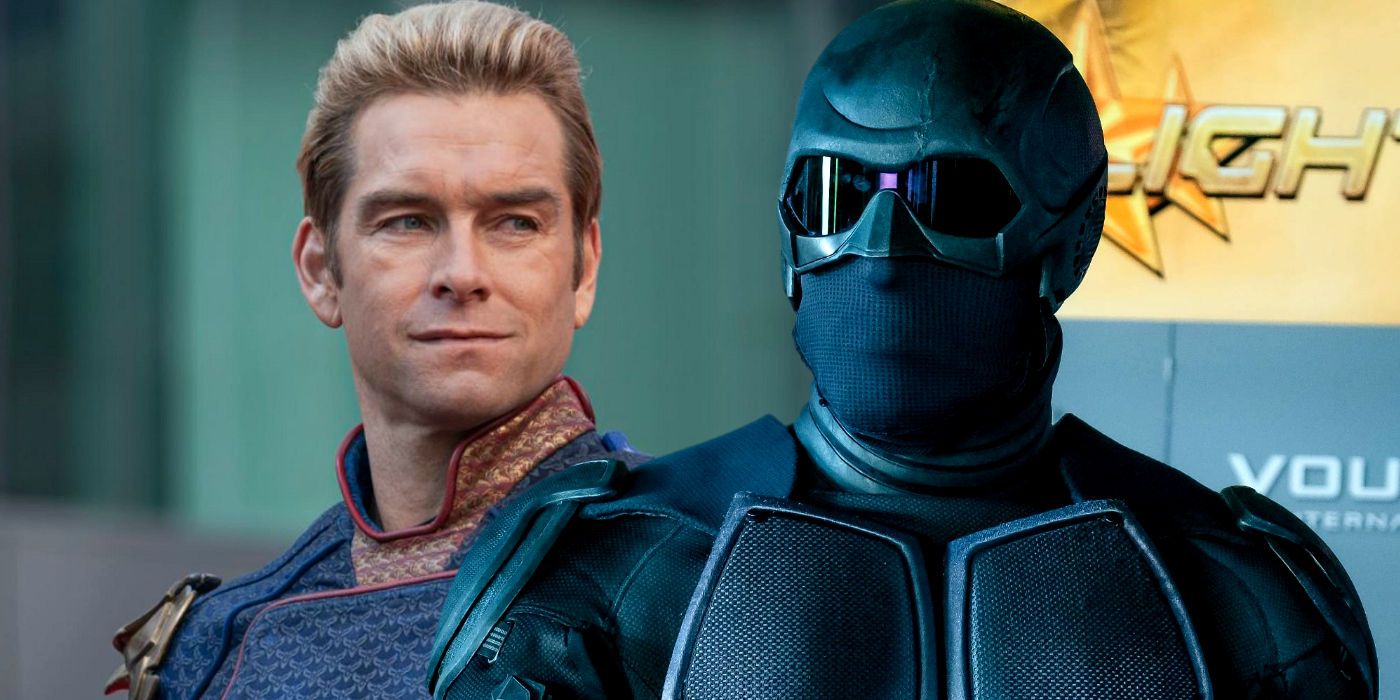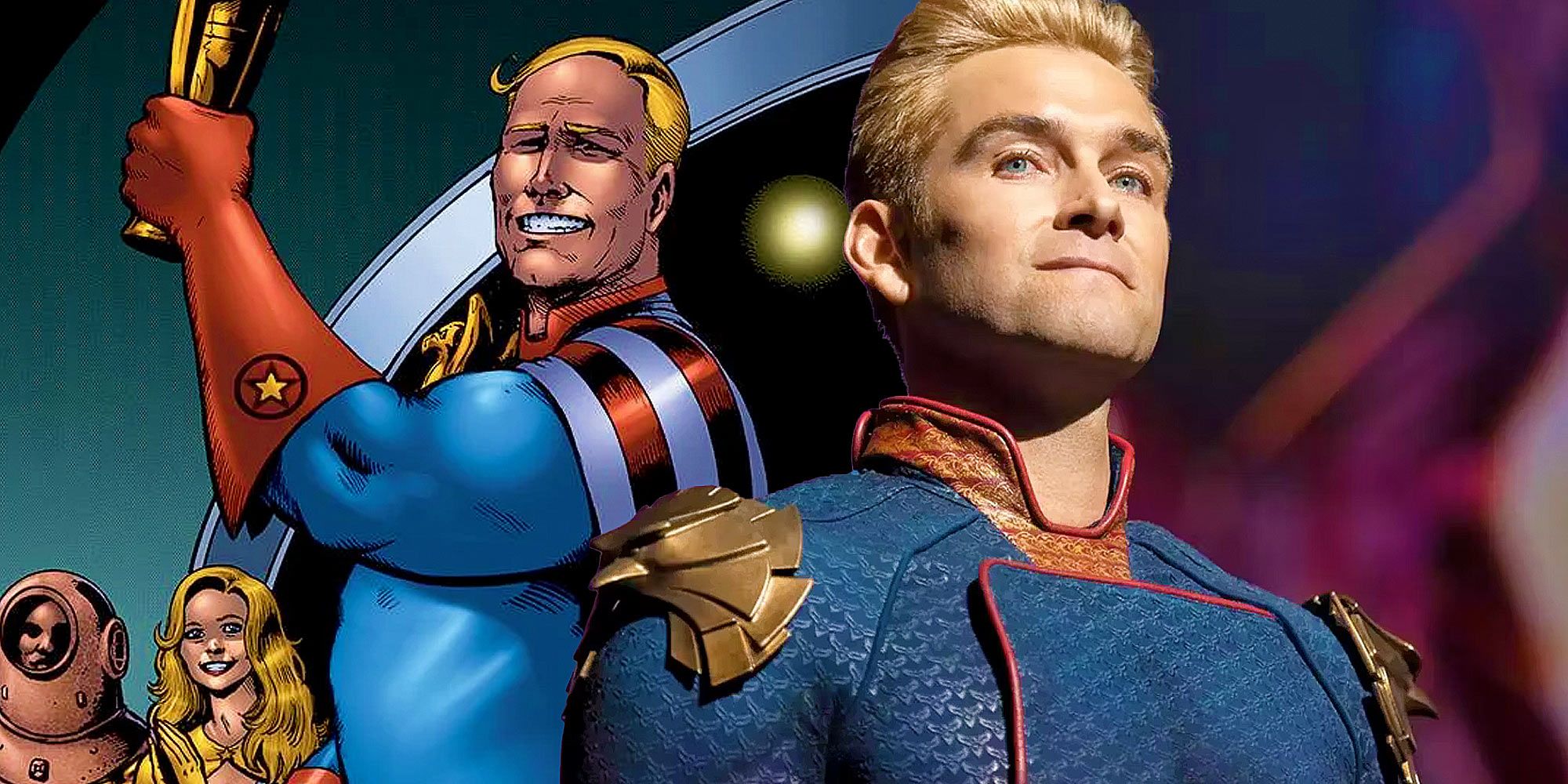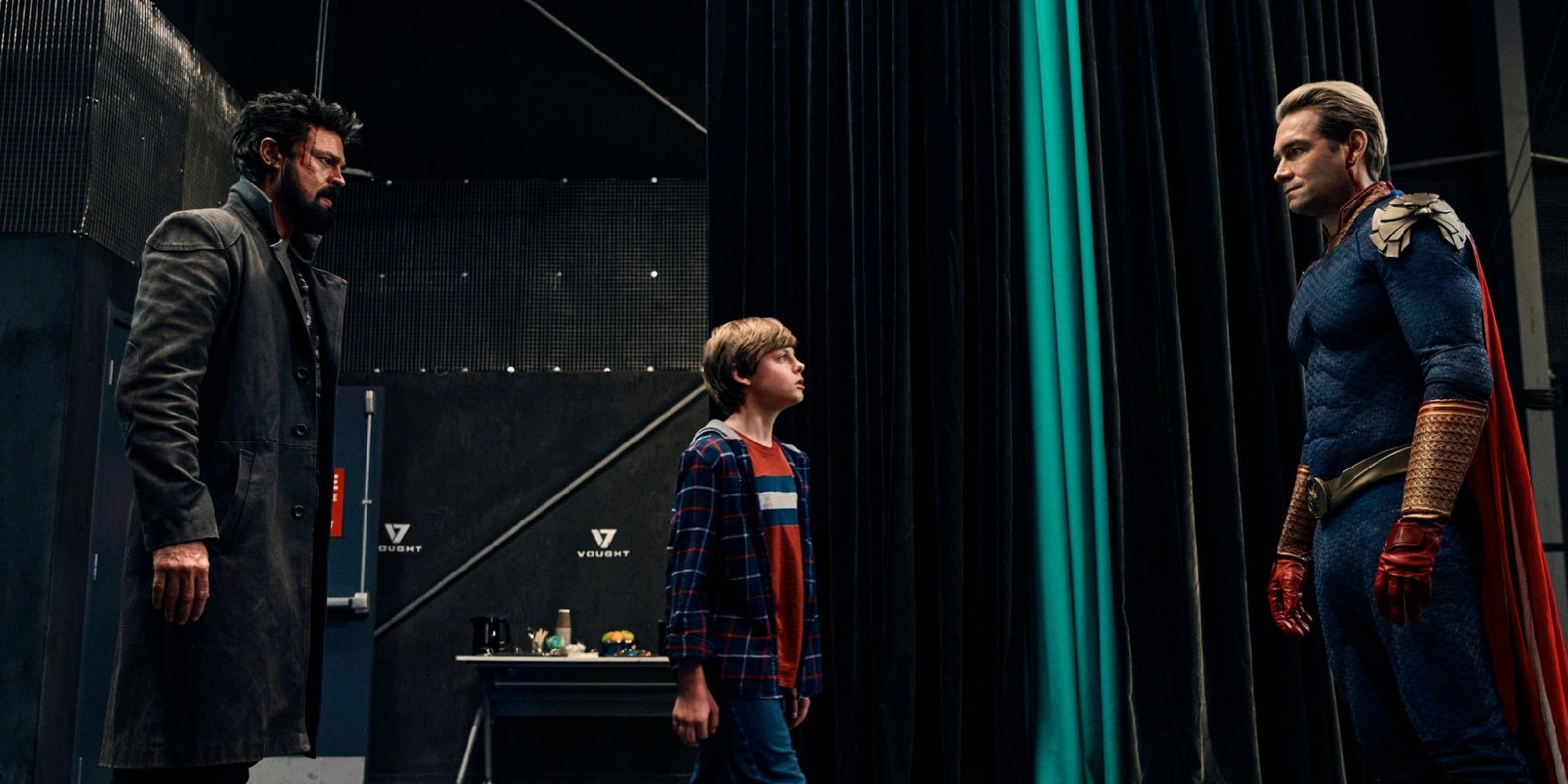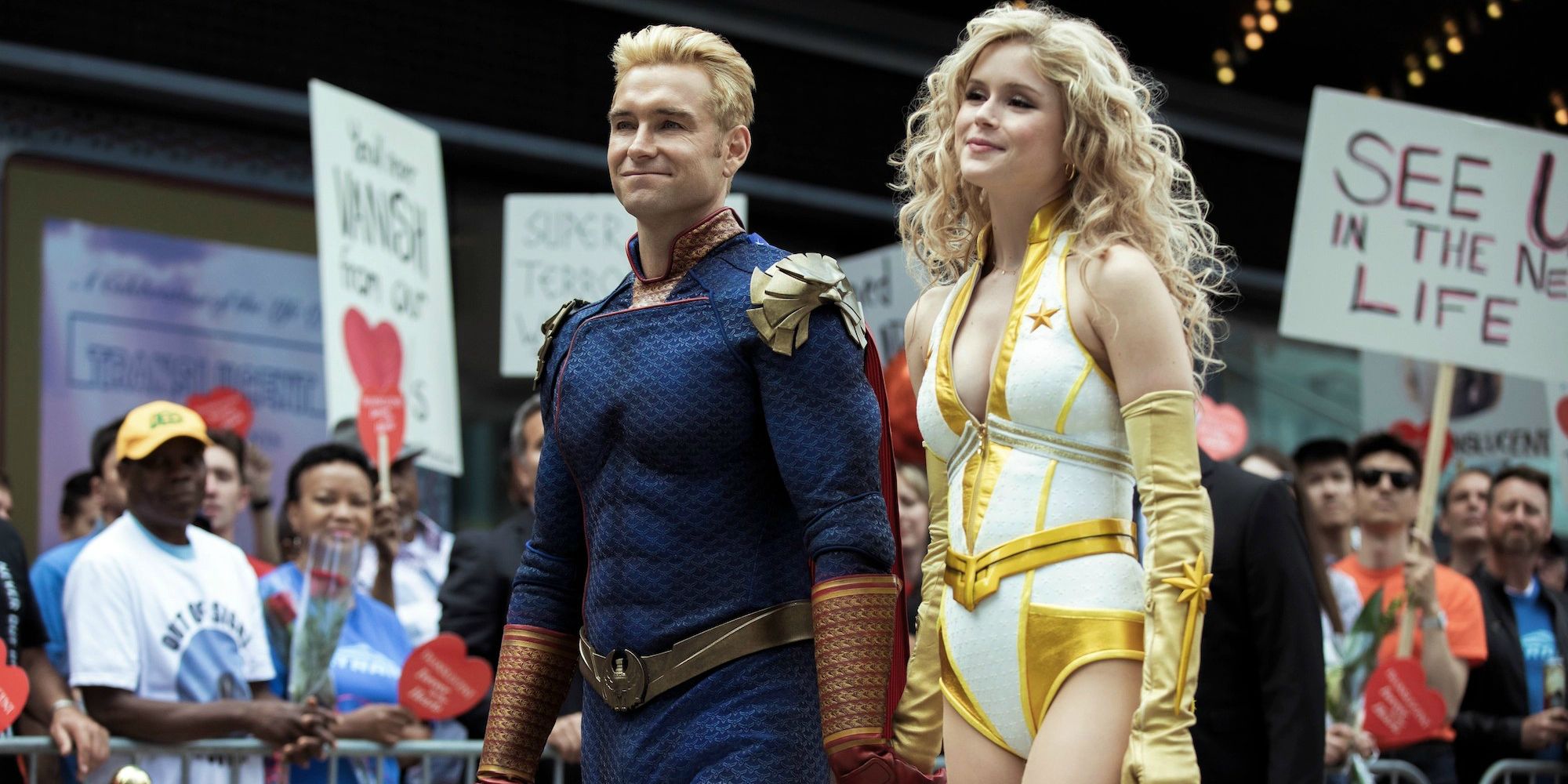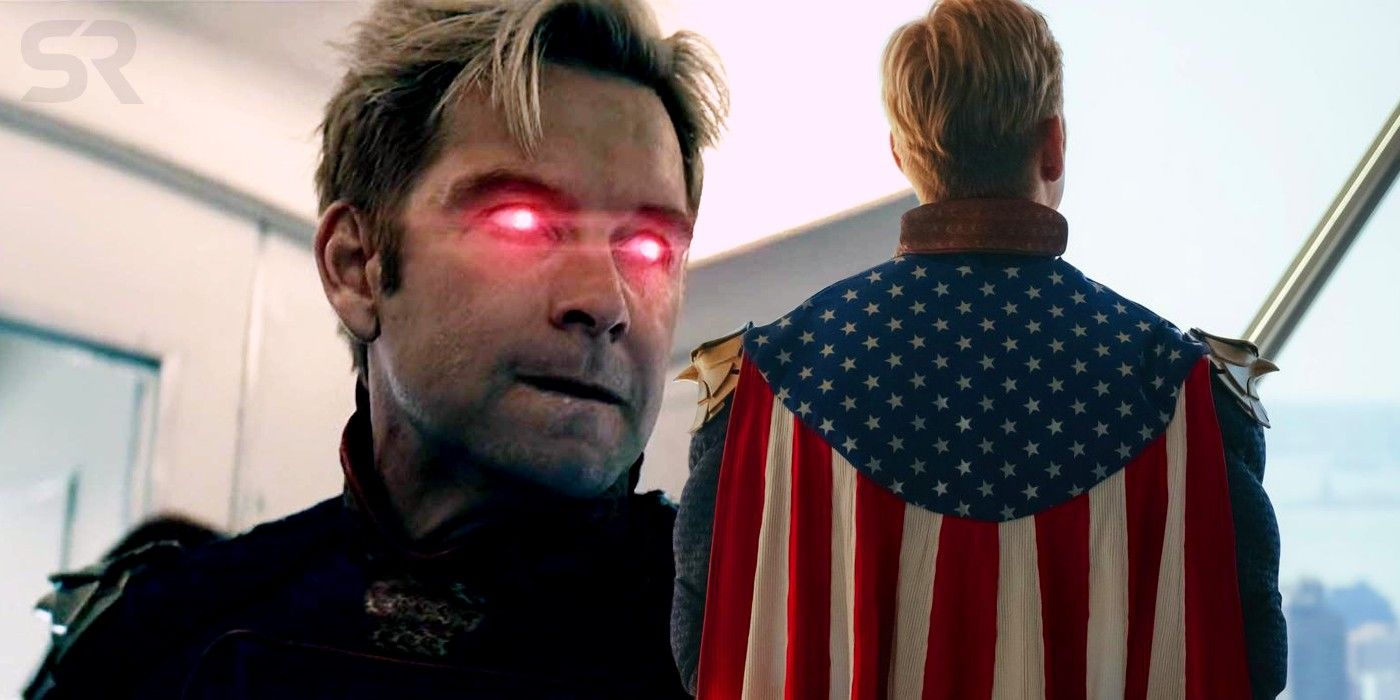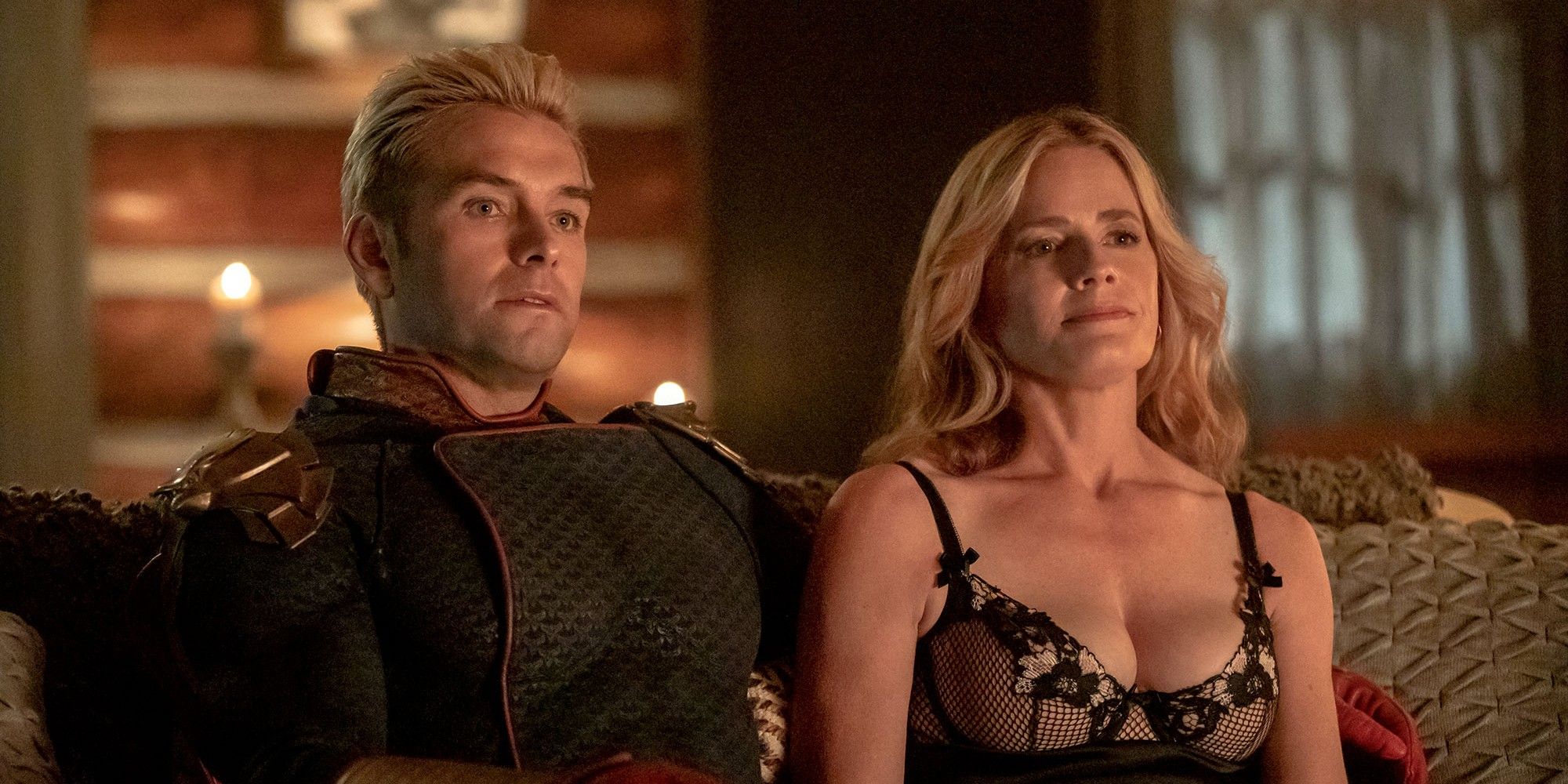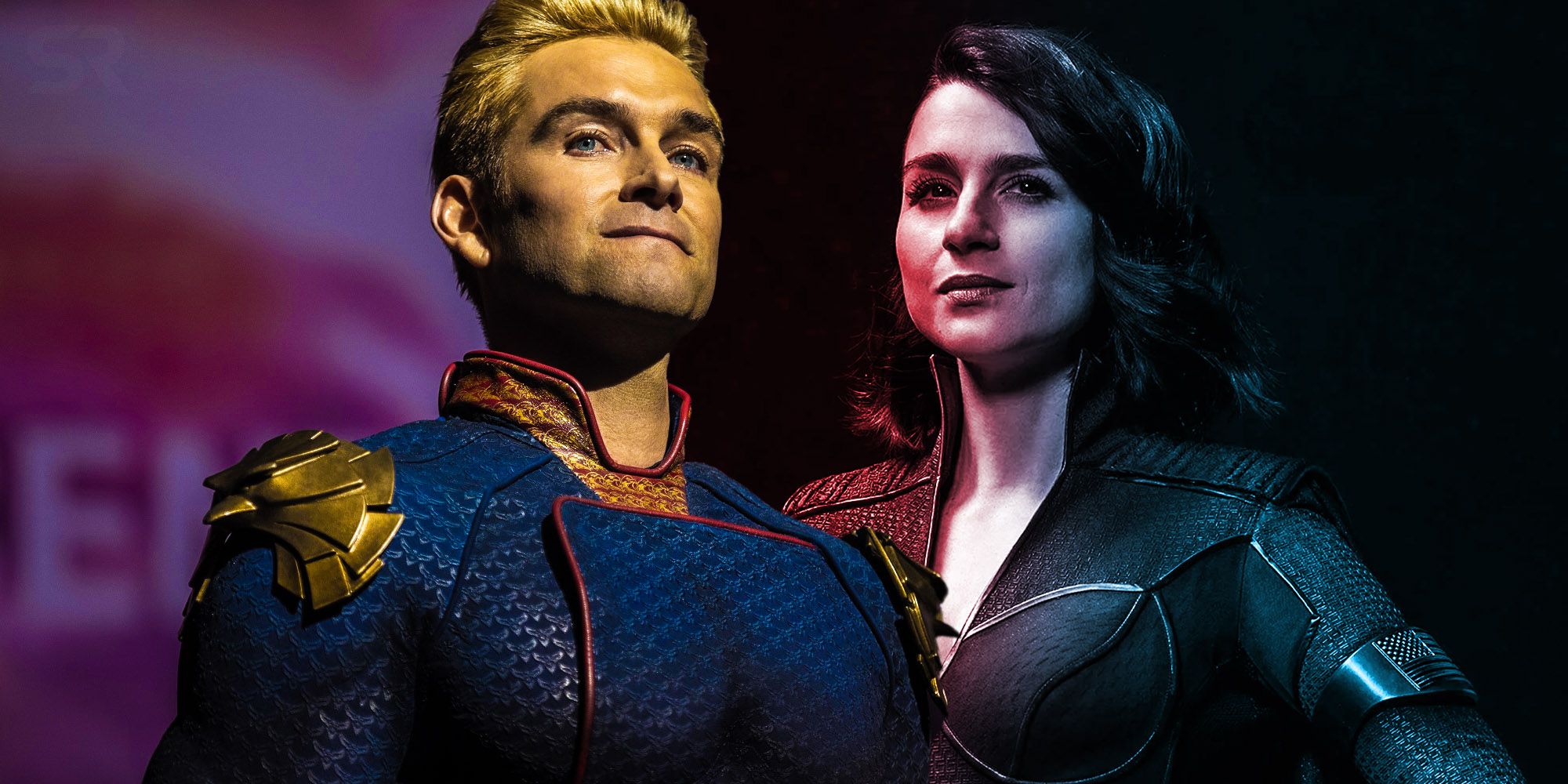Homelander is one of the main characters in The Boys just as he is in the comics, but the TV show has changed the character in several ways. Billy Butcher (Karl Urban), Hughie Campbell (Jack Quaid), and Starlight (Erin Moriarty) might be the three main heroes of The Boys, but Antony Starr's Homelander has an equally prominent role. The leader of The Seven is the world's most powerful Supe and is the show's main villain, despite his public persona of being a hero.
Prime Video's adaptation of Garth Ennis and Darick Robertson's comics often blurs the line between being faithful to the source material and taking it in new directions. The Boys maintains the same adult content status as the comics, but storylines and characters have repeatedly been changed as the writers see fit. In many cases, the changes made in The Boys have been for the better. Some of the more notable changes might be gender-swapping characters like Stormfront (Aya Cash), altering major events like Herogasm, or not giving The Boys powers until season 3. These are just a few of the ways The Boys show differs from the comics, but individual characters have also changed in some significant ways.
Viewers have seen the many layers to Homelander's story in The Boys. Those familiar with the comics knew ahead of time that the character had the chance to be an incredible TV villain, and Antony Starr has helped make that possible through his outstanding performance. While Homelander looks the same in The Boys show and the comics, his story has veered away from the source material several times. Here is every way The Boys' version of Homelander is different from the comics.
Click here to watch The Boys: Every Way The Show Changed Homelander on YouTube.
How The Boys Changed Homelander's Origin
Homelander's origin is different in The Boys compared to the comics in several ways. The show maintains the setup that Homelander was a creation of Vought's and that he got his powers from Compound-V as a baby. Both versions of Homelander were raised in isolation and tested as a child by Vought. The significant difference between The Boys' Homelander and the comics' origin is the basis of his creation. The comics had Homelander created during Vought's attempts to make the perfect superhero using Compound-V. As revealed in The Boys season 3, Vought used Soldier Boy's (Jensen Ackles) semen to create Homelander. Soldier Boy's semen was combined with an unknown egg donor to make Vought's next great Supe. This happened before Soldier Boy was betrayed by Payback, but Homelander did not meet his father until several decades later. The father-son connection between Soldier Boy and Homelander does not exist in The Boys comics.
The Boys Show Removed Homelander's Clone Twist
One of the biggest changes to Homelander from the comics is his connection to Black Noir (Nathan Mitchell). In The Boys show, Homelander and Black Noir are two of Vought's oldest Supes and members of The Seven, with Homelander even viewing Black Noir in a higher light than the rest of his teammates. The almost brotherly affection is nice, but the comics made them much closer thanks to the Black Noir clone twist. The source material eventually revealed that Black Noir was a Homelander clone created as a safety valve for Vought. He was meant to kill Homelander at Vought's discretion if he got out of control. The Boys has repeatedly proven that this storyline is impossible, as the man underneath the Black Noir costume has been shown and his origin explored.
The Boys Changed Homelander's Fate (& Gave It To Black Noir)
There has been plenty of teases that Homelander will die in The Boys show at some point. This is understandable on several levels, as it seems like the logical conclusion for his story and the series, but also because he dies in the comics. The Boys comics killed Homelander in an epic fight between him and Black Noir after he revealed his clone identity. Instead of having that storyline play out in the show, season 3 reversed their fates. Homelander killed Black Noir in The Boys season 3 after learning that the Supe lied to him. It was a brutal end for Black Noir that once again served as a reminder that he is no Homelander.
The Boys Show Changed Homelander's Herogasm Role
The Boys season 3 finally adapted the Herogasm comic event, which was not nearly as bad as expected and quite different. The Supe orgy has a very different setup in the comics, as Homelander leads all of Earth's Supes away as part of their cover to fight a massive threat in space. Homelander is not the one leading Herogasm in The Boys, although he does eventually drop in hoping to find Soldier Boy there. The two engage in an epic fight in the show, which is very different than their Herogasm interaction in the comics. There, Homelander tricks Soldier Boy into having sex with him as a way to get into The Seven, but he never really had a shot.
Homelander & Ryan's Relationship Is Much Deeper In The Boys Show
Homelander and Ryan's (Cameron Crovetti) relationship in The Boys is another example of how much the show has changed Homelander from the comics. Ever since the all-powerful Supe learned he had a child in the show, his mission has been to find him and give Ryan the father relationship he did not get. Homelander and Ryan's relationship developed so far in The Boys season 3 that Ryan even chose to stay with his biological father instead of returning to Butcher. This is different from the comics, as Ryan has no role in the source material. After Black Noir raped Becca and a Homelander son was created, the super-powered baby killed his mother while still in the womb. This resulted in Butcher killing the child, meaning neither he nor Homelander had the chance to develop a bond with the kid in the comics.
Homelander Isn't Involved With Starlight's Sexual Assault In The Show
Another big change for Homelander in The Boys comes with the show keeping him out of Starlight's sexual assault storyline. The show stayed true to the comics when bringing Annie January to The Seven. Like in the source material, Starlight is asked to perform oral sex on her new teammates. However, The Boys made this just something that The Deep (Chace Crawford) made Starlight do. The comics had The Deep, A-Train, and Homelander force Starlight into this sexual act, with Homelander leading the charge. Not only did The Boys keep Homelander out of this storyline in season 1, but he and Starlight eventually became a fake couple for the public in the show during season 3. That would not be possible if the series kept their horrible sexual history intact.
The Boys Is Missing One Homelander Power From The Comics
Homelander's powers in The Boys and the comics are pretty similar, as his laser vision, flight, super strength, near invincibility, and more are all abilities that he maintains in either story. However, there is one power that Homelander is missing from the show. He has shown the ability to use a sonic scream, which is when he yells loud enough to turn his voice into a mini sonic boom. The comics have seen Homelander's powers kill people within a specific range of the sonic scream. Although Homelander has yelled plenty of times in The Boys, a sonic scream has still never been featured.
Homelander's Stillwell Obsession Is Not From The Comics
Another significant way The Boys changed Homelander from the comics is with his relationship with Madelyn Stillwell (Elisabeth Shue). The series turned the high-ranking Vought member into the apple of Homelander's eye as he became obsessed with Stillwell. The two developed a strange romantic relationship, where Homelander became jealous of the motherly affection she gave her child and breastfeeding. Despite the impactful nature of Stillwell and Homelander's relationship, this is not from the comics. This is mainly due to Homelander having no real romantic interest in the source material, as well as Stillwell being a guy in the comics. Homelander does not shy away from sexual encounters with men in the comics, but nothing happens between him and Stillwell.
Homelander's Stormfront Romance Does Not Happen In The Comics
Homelander's other primary romantic relationship in The Boys is also a departure from the comics. Season 2 showed him falling in love with Stormfront, the secret Nazi Supe. This was a significant change from the comics for both characters since Stormfront was a straight man in the source material. Once The Boys gender-swapped Stormfront to make the character a female Supe, it opened the door for a romance between the two to begin. Stormfront wanted Homelander to help lead the next generation of Nazis, which he was not interested in.

